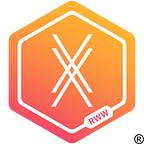Coding Is The Biggest Pain Point In High Tech
I say this because most of it is repetition and math. Over and over again. That’s what lines of code are made of, and I am part of the 1% of the population that can write that code. There are way more tech jobs than workers, so because of the immutable law of supply and demand, software engineers are very expensive.
My brother Philipp and I created Walleto (which was acquired by Google and became Google Wallet). That’s how I found myself in product meetings at Google where we learned about a major bottleneck in high tech: the best ideas take so long to code they’re irrelevant by the time they’re finished. Here the problem was not the resources. The problem was foundational. This is how long it takes to make quality products: The current way, which is the old way.
The church once held power through its exclusive access to Latin, and therefore, God. The monopoly on current methods of coding forms a similar bottleneck. Because being able to code is the new form of literacy and few people can do it, current workers can’t fill the jobs which are now the most desirable. There’s nothing wrong with these people; the flaw lies in the method that would leverage their innate skills. There are many, many more people who could be included in the large and fast growing tech industry.
Programmers argue that the power of today’s platforms is in their complexity, which can be understood by few, and that’s just the way it is. But if they shed their bias and defensiveness, I’ll bet they’d agree the methods we are using were created for a 2D, low-bandwidth world, without regard to privacy, mobile, XR, or IoT. None of the widely-used programming tools in use today were built for the technology of today. As a result, using traditional tools in new ways is complex, because these tools weren’t made for our emerging IoT-enabled, augmented reality-enabled world. They are layers of work-arounds built upon work-arounds. As a result, building powerful apps is like mowing the lawn with a pair of scissors.
Once upon a time, it was hard to build a website. Then came Wix and the platforms that allow anyone to do it in a simple, drag and drop template, thereby simplifying, democratizing, and commoditizing website creation, making it better, faster and cheaper.
The way Wix works is that its drag and drop templates sit atop hidden html in the background. The coding of html is thereby automated, and the creator of the web site doesn’t type a single command line, or even cut and paste a line of code to embed another service, like ecommerce. It’s all under the hood, in the background, doing the repetitive difficult work, saving hours and reducing skills required to be a creator.
Frankly, we hate the cumbersome repetitive part of coding, and so does every programmer. We’d rather focus on the product and business logic, so we set out to automate the boring stuff and build a graphical interface for programming not just web pages and apps, but things like cars (IoT) and even objects anchored in public places that can only be revealed by a smartphone (AR). To do this, we needed to create a new kind of programming language we call Pebbles. It’s our new drag and drop interface for spatial computing, allowing users to build web pages, apps, connected things and things to which we connect through physical interactions such as geolocation, computer vision, beacons, and audio recognition.
To prove how simple and powerful Pebbles and our unique development platform is, we’ve been creating live AR experiences at professional sporting events. This live event programming is why people think of Xperiel as a sports marketing company, but that’s not accurate. We’re a platform company using sports marketing as a proof-of-concept for what we’ve developed. Our Pebbles platform received the 2019 Edison Award.
The next step is to release Pebbles to developers and designers to provide further proof that this new development platform will turn designers into effective programmers, and vest programmers with superpowers.
By Alex Hertel, Co-Founder & CEO of Xperiel
